|
During my fifth year with D.C. United, the team brought in a nutrition specialist. The specialist gave his presentation and then looked toward a table in the middle of the locker room that held about 40 pill bottles of vitamins, supplements, mild pain relievers, gels, powders, and who knows what else. The nutritionist then walked over to the table, looked back to us, and said, “you know, if you just eat well you can throw all of these out. In fact, you’d be better off doing that.” He left the locker room five minutes later and never came back. For my first five years at DCU, I had been taking those vitamins and supplements at the recommendation of our strength and conditioning coaches and athletic trainers. Now a certified nutritionist deemed the whole thing a waste of time and had even said they could hinder our performance—I wondered what exactly to do. Who should I listen to? This memory has stayed with me because it matters a lot for an athlete what you do with your body. It matters how you train, eat, sleep, relax, and recover. You need to know what is helpful for your athletic development and what is unhelpful. I wanted to know if the pills and supplements helped me or hindered me. This all applies to athletic prudence in the natural realm. Prudence is the ability to judge rightly and act according to that knowledge. It is being able to think through things correctly and then make the right choice. Thus, athletic prudence is the ability to choose and act rightly in the realm of an athletic pursuit. We make decisions and then act based upon what we have concluded is actually helpful or unhelpful in relation to our goal. I would like to apply this same line of thinking to the virtue of prudence in the supernatural realm. We should be asking what is helpful or unhelpful in terms of our spiritual lives. Just like the nutritionist condemning our pill vault and making me wonder what was actually helpful for my soccer career, we should ask what in our lives helps or hinders us from going to God. In order for us to do this, of course, we must acknowledge that God is both our goal and a worthy (the most worthy!) goal at that. When I got to the height of my playing career I was devastatingly depressed for a very concentrated span of time (only several days). For months I pondered why I hit such a low point amidst more success than I had ever expected. Eventually, through the help of the Holy Spirit, I realized that God allowed me to feel the weight of my success without Him. It was an incredible grace—but also one that was difficult to really learn. Over time the truth that my soul was more important than my sport sunk in. I realized that much of what I had made my life about was, in the end, unhelpful for reaching the ultimate Goal who is God. I started applying my athletic thinking to my spiritual life. I started asking the right questions—is this helpful or unhelpful for my spiritual life? Should I be hanging out with this group of friends so much? Are my weekend habits really bringing joy to my life? Am I living as the person I want to be? Do I know who I want to be? These questions led—and continue to lead—me to Jesus, and I find myself needing to ask them again and again. Do the decisions I make help me become who I want to be? Or are my decisions hindering me from being that person? Athletic prudence helps athletes maximize their potential and use their God-given gifts to the best of their ability. This same principle can—and should—be applied to our spiritual lives. Are the decisions, actions, and principles that guide my life helpful? Are they leading me in a good direction? Prudence, says St. Thomas Aquinas, is the mother of the virtues. You cannot possess any virtue without the virtue of prudence because prudence is what enables us to recognize what is truly good (helpful) and then act according to that good. No athlete can become great apart from athletic prudence because athletic prudence enables the athlete to recognize and act upon what helps him or her become a good athlete. Far more important, however, is the realization that no person can become who they were created to be apart from supernatural prudence. It is not possible to follow Christ without first asking yourself what exactly it is you’re already following—what is it that shapes your decisions? It may be a desire for comfort, power, status, honor, wealth, success, popularity, or any number of things. But they all fall short. To be prudent you must know the end goal. You cannot attain the virtue of prudence in the whole of life without knowing that “it is Jesus in fact that you seek when you dream of happiness.”  Taylor Kemp is an instructor for the Denver Catholic Biblical School as part of the St. John Vianney Seminary Lay Division in the Archdiocese of Denver. He is a former professional soccer player, amassing over 100 appearances over six-years in Major League Soccer (MLS) for D.C. United, and playing for both the youth and full United States Men’s National Team. Taylor holds an MA in Theology from the Augustine Institute and BS in Business Management from the University of Maryland, College Park.
0 Comments
Jesus gives us one of his greatest challenges in the Gospel for today. He says, “Stop judging and you will not be judged. Stop condemning and you will not be condemned. Forgive and you will be forgiven…For the measure with which you measure will in return be measured out to you.” (Lk. 6:27-28) While the last paragraph of this passage is the part that is most often quoted, the first two-thirds are just as challenging. In his words leading up to the well-known “judge not lest ye be judged,” the Lord calls us to be better than just taking the easy way out. Speaking to his disciples, Jesus said, “To you who hear I say, love your enemies, do good to those who hate you, bless those who curse you, pray for those who mistreat you. To the person who strikes you on one cheek, offer the other one as well, and from the person who takes your cloak, do not withhold even your tunic. Give to everyone who asks of you, and from the one who takes what is yours do not demand it back.” The key word is everyone.
He says, “For if you love those who love you, what credit is that to you? Even sinners love those who love them.” He reminds us that the easy way out won’t get us very far in the eyes of God. So you do good to those who do good to you? Even sinners do that. Think, Jesus constantly argued with the Pharisees who were quick to judge others but not themselves: “Why do your disciples pick grain on the sabbath? Why do you dine with sinners and tax collectors?” (emphasis added). Jesus’ response is this, “But rather, love your enemies and do good to them… then your reward will be great and you will be children of the Most High, for he himself is kind to the ungrateful and the wicked. Be merciful, just as also your Father is merciful.” To be merciful, to love even those who we find hardest to love, is to participate fully in the life of God who is merciful. We see Jesus’ command to not judge or condemn taken to extremes on either side. On the one hand, we can take this command to mean that we cannot correct or rebuke someone for their actions, even actions that are harmful to themselves or others. “Jesus said not to judge,” is often used as an excuse for the relativism that permeates our society. We can’t judge what someone else believes. In fact, to even suggest objective truth could be seen as condemnatory or judgmental and, therefore, we can’t do that. On the other hand, some will merely ignore Jesus’ words and condemn others as sinners, which we all are. If we ignore Jesus’ words, we risk putting ourselves on a pedestal, seeing ourselves as the good people and those other sinners as unclean and unworthy of my love and God’s love. In fact, Jesus is calling us to the middle ground. We believe in truth and that people can, in fact, be wrong. With patience and charity, we can judge an action to be right or wrong, but never in condemnation of the person—that judgement is God’s alone. Indeed, it is that understanding that God alone can judge a person’s heart that we must remember at all times, in all of our relationships and interactions. When we love others, friends and enemies, when we save condemnation and judgement of one’s heart for him alone who can do so (the Almighty God), then “For the measure with which you measure will in return be measured out to you.” Lord, Jesus Christ son of God, have mercy on me, a sinner. To learn more about our call to mercy, please click here. When I was younger, I often found myself scandalized by the actions of other people. I grew up with a very legalistic morality which sees rules and laws as black and white imperatives. On the one hand, there is a benefit to seeing the value of rules and laws which—when just—help to guide society in the right direction. On the other hand, a legalistic morality fails to see others with eyes of compassion and mercy, the same eyes through which Christ sees humanity and through which he asks us to see as well. When we see people as a compilation of their successes and failures, we do not see the whole person and only focus on what they have done or failed to do. This mindset was often exemplified by the Pharisees who clashed with Christ, as demonstrated in the story of the woman caught in adultery. When the Pharisees brought this woman before Jesus, they did not expect him to respond with compassion. In this passage, the Pharisees and scribes remind him that the law of Moses commands her to be stoned. In response, “Jesus bent down and began to write on the ground with his finger,” and said, “Let the one among you who is without sin be the first to throw a stone at her” (John 8:1-11). Christ reminds us to see with eyes of compassion, but also provides a mirror with which to examine ourselves and our own sin. This is not the only time that Jesus presents us with this challenge. In the Gospel of Matthew, he says, “How can you say to your brother, ‘Let me remove that splinter from your eye,’ while the wooden beam is in your eye? You hypocrite, remove the wooden beam from your eye first; then you will see clearly to remove the splinter from your brother’s eye.” In both cases, Jesus invites those listening to a profound self-examination that leads to conversion rather than self-righteous judgment. In the story of the adulterous woman, we learn that Christ does not allow us to continue wandering aimlessly in our sin but gives us a new directive: “go and sin no more.” The eyes of compassion with which God sees us, and through which we are called to see others, are not blind. Compassion does not mean that we can do whatever we want even if it is detrimental to ourselves, others, or our relationship with God. What God is asking of us is a contrite heart that continually returns to his infinite love. When we sin, we separate ourselves from our neighbor, from God, and from the depths of his infinite love. When Christ says to sin no more, as he did to the woman caught in adultery, he is also telling us to love more fully. To see with eyes of compassion sees this reality and doesn’t mistake our sin as simply breaking a rule. Eyes of compassion allow us to walk with the other person and be walked with ourselves in order to overcome the sins that weigh us down. Today, let’s choose to look with the eyes of compassion and mercy as we strive to follow Christ’s call to “go and sin no more.” The Gospel reading for the Fifth Sunday of Lent is the familiar passage of the adulterous woman and her accusers. For as long as I can remember, this story has been bittersweet: it involves targeted harassment and shame, but also redemption and conversion. At this point in Lent, I don’t think there is a more needed, or relatable, lesson for us to be reminded of and to work on accepting. So, we’re five weeks into our Lenten journey. We’ve been skipping meat on Fridays and trying to live without whatever convenience or vice we decided to give up or purge from ourselves. Maybe we’re praying a little more than we normally would or are setting aside a few minutes to read a daily reflection from those little black books left in the back of our churches. But even with all of these intentional and humbling acts and motivations, we often still feel unworthy or like we’re faltering. Because of this, it’s possible to say that we don’t even need the Pharisees to judge us and bring us for judgement before God – we’re doing it enough for ourselves. To overcome this, I want us to reflect on three things: personal attitude, an open heart, and recognizing what’s in front of us. I think sometimes we’re too hard on ourselves. We allow our own harsh judgements to replace the only one that truly matters: God’s. Our own personal attitude can prevent us from accepting and sharing in the love and grace of God if we constantly feel that we are unworthy or failing. In the Gospel, when the adulterous woman is brought before Jesus, it does not say that she cried or tried to run. In the Gospel account, she lays at the feet of Jesus, lets Him clear her name and, ultimately, lets Him forgive her sins. Here’s a secret I’ve learned that the Gospel has been trying to tell us for a few thousand years now: Man is never worthy on his own, but has been made so by Christ, who offers redemption to all. If man were worthy, Christ would not have needed to redeem us after the Fall. So, we need to stop allowing our own negative perception of our efforts to prevent us from bearing or receiving the fruits of God’s grace and forgiveness. Why was Jesus’ reaction effective with the woman? Christ did not condone her sin, but met the woman in her sinful situation with love and mercy. Surely, such a transformation is not possible without a profound encounter with God’s mercy, an openness to change, and conversion of heart. The adulterous woman of this week’s Gospel is told by Jesus to “Go, and from now on do not sin any more” (John 8:11). As a result of her encounter with Jesus, her heart was changed, and she spent the rest of her life trying to grow closer to Him. We are called to do the same – during the Lenten season or any other time. If we are open to the love of God, it will fill us and strengthen us in our actions. With a faithful attitude and a heart that is open to change, all that is left is for us to encounter God. In order to do this, we must recognize what is in front of us. In the challenges, relationships, beauty of nature, art, and moments of prayer, God is entirely present and inviting us to share in it with Him. What a beautiful gift, and how accessible and truly joyful this is for us! I want to suggest that each of us take a few moments each day this week to reflect on how we’ve gone out of ourselves to be with or grow closer to God. Instead of grumbling about how much we miss Netflix or those amazing chocolate caramels, be proud of yourself for being so committed to your solidarity with Christ and His own suffering. Or, if you tripped up, instead of getting frustrated with yourself, reflect on the three Stations of the Cross in which Jesus falls. Absolute perfection is never what God expects or even desires – He’s just pleased to recognize a desire in us to do better. For more resources to accompany you along your Lenten journey, please click here. Question for Reflection: How can you grow closer to God in the final days of the Lenten season? Just before Advent, the Holy Father was leading his usual general audience when a six-year-old autistic boy, Wenzel, escaped from his family and wandered towards the pope. Blissfully unaware of the attention he was now attracting, young Wenzel scurried about Pope Francis and interacted with his surroundings—including a Pontifical Swiss Guard standing at attention nearby. After the boy’s mother explained the situation to the Holy Father, Pope Francis encouraged her to let him continue to play and then offered a beautiful teachable moment to the thousands gathered in the Paul VI audience hall:
This boy can’t talk, he is mute but he knows how to communicate. He knows how to express himself. He has something that made me think: He is free. An undisciplined freedom… but he is free. It made me think, “am I also free like that before God?” When Jesus says that we have to become like children He tells us that we have to have the freedom that a child has before his father. I think [Wenzel] preached to all of us. In referencing the call of our Lord to “become like children,” Pope Francis affirmed the unique dignity of even the youngest of human persons, namely their innate innocence, senses of wonder and curiosity, and free-spirited (and sometimes seemingly limitless) energy. Rather than characterizing the source of the “disruption” as having to be managed or handled—perhaps as parents of autistic children are all too familiar with in social situations—the pope celebrated the liveliness of the circumstances and explained that the faithful could spiritually benefit from imitating the blessed boy before them. Children are unconcerned with headlines, deadlines, schedules, requirements, and the expectations or the judgements of others. They often simply have wants they seek to fulfill and they set about observing and learning from their surroundings. They do not immediately know everything they should, and they recognize many of their needs require receiving help from another. When our Lord first called upon His disciples to become like children in order to enter the Kingdom of Heaven, He had called a child to Himself before those gathered around. I imagine the adults immediately thought to themselves, “What could I possibly gain from becoming a foolish, helpless youth? I am successful now, I know so much now, and not because I kept thinking or acting like a child!” Adults are all too susceptible to pride, be it of power, status, wealth, or knowledge. We get caught up in what the world (i.e. bosses, politicians, friends, and peers) expects of us in order to attain some level of temporal success. We entangle ourselves in the circumstances of situations, the reasons to do or not do something, and we may let too many external influences affect us unnecessarily. While intelligence or critical thinking itself is not a bad thing, adults may overthink certain situations a child would otherwise address head-on. For example, wanting to charitably help the less fortunate may tug at the heartstrings of a child to engage with that person; an adult, however, may become distracted from the needs of that person before him or her with personal judgements (or those of others around), embarrassment, selfishness, or any number of reasons to not offer assistance. Becoming like a child, then, would seem to be more pure and innocent. Think of the demands of Christianity: love God more than yourself, care for your neighbors, avoid sin and sacramentally repent whenever you fail, faithfully go to church, generously give to the needy, pray for your enemies, and serve others humbly before yourself. These commands are not meant to be burdensome or harsh except to whatever pride or selfishness we cling to. Adults may overthink their capabilities to do good and avoid evil when evaluating circumstances and how to act. To children, however, these acts are simply directives they should obey and not question or “situationalize.” This Christmas, let us renew our childlike faith by freeing our hearts and minds of prejudice and overcomplicated justifications. Our lives should be spent ministering and witnessing to God Who made each of us. In mirroring the innocent freedom of children, we can enhance our goodwill and loving charity towards others and increase our devotion and faith in God. Let us remember that our Heavenly Father loves us unconditionally: so much so that the Almighty sent His Son to dwell among us as a helpless Child. Questions for Reflection: Why did Christ say we must become like children in order to enter the Kingdom of Heaven? Have you ever learned an important truth or lesson from a child? For more resources to accompany you on your Advent journey, please click here. This Sunday's reading from Luke is from one of my favorite passages in the Gospel. We pick up with the two disciples who just encountered Jesus on the road to Emmaus. Whatever business these disciples had out in the countryside, they abandoned their plans after their encounter with Jesus and ran back to Jerusalem to share what had happened. The Gospel says that “While they were still speaking about this, he stood in their midst and said to them, ‘Peace be with you.’” Based on how abruptly Jesus appears to the rest of the disciples, we can imagine that they were incredulous at what Cleopas and his companion were telling them. As with “Doubting Thomas,” it seems that the other disciples also needed to see in order to believe.
It’s interesting to compare the encounter on the road to Emmaus to the interaction that takes place here. When the two disciples met Jesus on the road to Emmaus, they had no idea it was him. He walked with them, developed a rapport with them, and only then did he challenge their worldview and lack of faith in the promises of God. He gently rebuked them, opened up the Scriptures to them, and then broke bread with them. And it wasn’t until that moment that they truly understood who Jesus was and how he fulfilled the Scriptures: “Were not our hearts burning within us while he spoke to us on the way and opened the scriptures to us?” Jesus was patient, meeting them where they were and letting them understand God’s work at their own pace. When Jesus appears to the rest of the disciples, he seems to appear out of nowhere. They all panic and think he’s a ghost until he proves his physical presence to them: he shows them his wounds and even eats something right in front of them. It seems he has the intent of driving the point home, opening their minds to understand the Scriptures. This time, it’s without rebuke, without judgment or frustration. He instead gives the disciples something to look ahead to: “You are witnesses of these things… I am sending the promise of my Father.” He doesn’t just explain the past, but also hints at what’s to come! I love this passage because it speaks loudly to our tendency to not really take matters of faith to heart. And it’s so easy to do. Even for a person of faith, the Passion, death, and Resurrection of Christ can seem completely outrageous! We can be slow to understand God’s plan and actions in the world and in our lives, especially when they are different from our own. Even saints like Mother Teresa experienced doubt at times. But we can take heart in knowing that, when these times of doubt come up, Jesus will make himself known to us in some way, much like he did on the road to Emmaus and in his appearance to the disciples in Jerusalem. He may not be as explicit as we’d expect; it can come through a word from a friend, a kind gesture from a stranger, or even our own actions toward others. God uses all the experiences and encounters in our lives to invite us to encounter him, too. Just like on the way to Emmaus, he walks with us, befriends us, and shows us the truth. Sometimes when we are slow to understand, he acts more directly and obviously in our lives, as he did with the disciples in Jerusalem. As we continue this joyful season of Easter, let us always listen to those times our hearts are burning within us. It is then that God speaks to us most clearly, if only we pay attention to Him. Question for Reflection: How is God walking with you this Easter season? As I write this, the weather is gray and cold. It has been raining for what feels like forever, though more accurately it’s been about a week. I miss the summer. I miss a lot of things, and people, when October rolls around. It seems to be a month made for melancholy. Perhaps it is because two of my grandparents died during separate Octobers in my childhood. This month has always been a time of missing them, remembering the past, and grieving. I was eight the October my paternal grandmother died, and she was the dearest person in the world to me. Grief is a word we use to describe the feeling of missing someone or something after they are lost to us forever. We grieve days that are behind us, relationships that never grew, opportunities that we missed. But most of all, we grieve persons. Death seems to be the end of all that is, the end of all who is. It is unbreakable, unbreachable, unending. As Christians, we do not think in those terms because they have been proven false. Jesus Christ, as well as Mother Church, tells us that death is not the end. It is an act of hope to believe this. Death only appears to be final and absolute and unknowable. Through Christ’s resurrection, God has revealed that death is not our final end. It is often hard for us to trust what happens next because we simply cannot know it with the certitude with which we know this world. The Church speaks of the Four Last Things, with Death being the first or entryway to the other three: Judgment, Heaven, and Hell. But that is another topic. What about those of us who remain on earth while a loved one has gone ahead? What do we do? How do we live with loss? C.S. Lewis told a friend who had recently lost his beloved wife, “Sad you must be at present. You can’t develop a false sense of a duty to cling to sadness if– and when, for nature will not preserve any psychological state forever– sadness begins to vanish” (A Severe Mercy, Sheldon Vanauken). Of course we feel sad as a result of someone’s death. A loved one who brought joy and lightness into our hearts has gone, and our sadness is a natural response. There is no Christian commandment forbidding sadness. It is an emotion, which is neither good nor evil. Emotions just are. They come and go, washing over us. If we choose to take them too deeply within ourselves, however, emotions can become dangerous. We can drown in grief, for example, if we make it our cosmology. And the Christian is commanded to have the same mind as Jesus Christ. He sees the world with the eyes of resurrected love. While we may not always be able to choose our emotions, we can choose our attitude and our response to them. Joy, even in the midst of sadness, “comes of being loved” wrote Pope Benedict XVI in Deus Caritas Est. And love has conquered death in a singular act. Jesus, the Christ, the Second Person of the Trinitarian Godhead, the Son of the Father, died on a cross to redeem us from an unredeemable bondage because he loved us and desired us to be with him. It is to that reality that we must orient ourselves. Grief can too easily turn us inward. Like a black hole, it can devour everything surrounding it so that it is the only thing left. Love perpetually calls us out of ourselves, and asks us to give ourselves as a gift, even and especially in the hard times. I do not doubt that God’s heart broke when humanity sinned the first time, and breaks again at every subsequent sin. But God did not become consumed by grief at our fall. God is love, and love gives of itself to the beloved unceasingly. Therefore, God acted in order to redeem mankind. I want to tell you more about the process of grief, of going through the stages of denial, anger, bargaining, depression and, finally, of reaching acceptance, but I don’t know your process. I don’t know your specific loss, which we all must face at various times of our lives. That’s okay. We can hold a space for each other as we go through the process of grieving. We can let each other remember and smile and laugh and cry and long for the missing one, repeating this process as necessary. As a recent homily reminded me, our God does not tolerate idols in our lives. Our grief cannot consume our love, or else it makes a golden calf of our beloved. May our love of God, united with the love our dearly departed, orient us to the loving heart of the Father. May we know that this present sadness is not the end. Question for Reflection: Have you grieved the loss of something in your own life? How has your faith impacted your experience of grief?
The story of Christmas illustrates that there are no perfect families (or parishes) but we can hope to be a holy one. Part of becoming a holy family at Christmas means turning our attention to the spiritually lost among our family and friends. Here are a few things to keep in mind as we look to welcome disconnected Catholics to our churches and homes this season. Make Room for the Lost and Lonely For some people walking through the church doors, the Christmas season is a difficult and lonely time, a reminder of the families they don’t have. How do we show hospitality to those without a human family? If you are on a church staff or volunteer, slow down and consider the place you are making for those who feel lost and alone. You could, for example, make sure that the elderly and handicapped are able to find seating appropriate to their needs. Or, personally invite those who are alone to join in any parish fellowship that might be happening after Mass. Perhaps you could even invite a few of these people to bring up the gifts during Mass. A special role in the Mass during this important liturgical season can show those who feel unloved how honored we are to have them as members of our parish family. The goal is not to expose or make a scene around these types of parishioners, but to consider their needs and communicate that they are valued. Make Occasional Visitors Feel Loved, Not Judged For those coming to church at Christmas for the first time in a long time, many already carry a mild feeling of guilt that they don’t go to church regularly and expect to feel a little judged. Let us welcome these occasional visitors with open arms and encourage them to return by modeling the joy of the Lord through our actions. Joy is persuasive. If we let the love of Christ beam through us this Christmas season it might just be enough to help these occasional visitors desire more frequent encounters with our Lord in the Mass. Give a Gift to the Poor The Christmas gift-giving tradition began with St. Nicholas giving a gift to a poor family. While many church budgets are spread thin during this time of year, consider making room in your budget to help the church provide a gift to a local charity or foreign mission. Not only is this celebrating the authentic tradition of Christmas presents, it a sign of generosity that encourages church communities to remember their brothers and sisters whose basic material needs often go unmet. When we demonstrate charity as a parish family, we send a powerful message about what it means to come together on Sundays. Our faith is what is called a “corporate faith,” meaning, that we are all working toward salvation together. For those who have never been to Mass, or haven’t been in a long time, demonstrating parish-wide charity can show how much we as a community care about individual members of the body of Christ who are in need. For those who feel unwelcome or unworthy of joining the Church, communal Christian charity is a great way to demonstrate that we want them with us on Sundays and that we will work together to make sure their needs are provided for. Evangelize Through Beauty The Advent and Christmas seasons are rich with light and melody, in both a sacred and worldly sense. Advent is the liturgical season when we encounter beauty in the sparseness and fragility of the barren winter. The Christmas octave and season is full of color and sounds. Beauty has the effect of lessening our defenses and heightening our receptivity to the message of Jesus. What are the elements of beauty present in your church and home? How can you enhance them? Consider playing some soft sacred music in your home during the holidays or decorating your home with a nativity scene or poinsettia plant. It doesn’t take much, just something small to celebrate what a miraculous time Christmas is for all Christians. Jesus was born in an “irregular” family situation - not a perfect family by worldly standards, but a holy family in God’s plan for the world. Would we Christians today recognize and welcome this same Jesus? He is among us. He is knocking at the doors of our hearts, homes, and churches in the form of family, friends, and strangers in need of peace and hope. Let us welcome Jesus in! "In light of Father’s Day, I have been reflecting on how the Father cares for his children, and how we can understand God’s fatherhood."
“… You, oh Lord, are our Father…” (Is 63:16) During an especially difficult time of transition in my life, I became very bratty with God. As in, I whined to God the Father, and was very spiritually dramatic. “Abba! Daddy!,” I screamed, “What are You doing with my life? What is going on?” The short answer: taking care of me. The long answer: taking care of me in ways I haven’t even begun to realize. In light of Father’s Day, I have been reflecting on how the Father cares for his children, and how we can understand God’s fatherhood. We live in an age characterized by fatherlessness. Personally, I don’t have the best relationship with my earthly father, and neither do many of my peers. This can sometimes damage our view of God the Father. Does the Father really love me? Does He like me? These and other questions can plague our spiritual lives as we seek to understand our roles and vocations in life. Someone somewhere along the way told me the Father loves me, and I believed them. But I have also wondered what that means. What does it mean to be taken care of by a good father? What does a good father look like? What role does spiritual fatherhood play in this age? To get some answers, I grabbed a few books. I also bribed my pastor with brunch one Saturday and asked him. The Catechism of the Catholic Church, in paragraph 2223, states that parents are responsible for “creating a home where tenderness, forgiveness, respect, fidelity, and disinterested service are the rule. The home is well suited for education in the virtues. This requires an apprenticeship in self-denial, sound judgment, and self-mastery - the preconditions of all true freedom.” The Catechism says parents, not just the mother or the father, but both create the home. How often in sit-coms, movies, or advertising do we see dads being labeled as irresponsible buffoons who can’t take care of their children or run a household without impending disaster? How often do we hear, jokingly of course, that a woman’s husband is her biggest kid, implying that she has to take care of him as if he can’t care for himself and others? In my conversation with my pastor, Fr. Michael, he pointed out the similarities and differences of biological and spiritual fatherhood. A spiritual father can never replace and cannot be as close as a biological father because the community a priest serves is diverse and varied. Human fatherhood, both biological and spiritual, is for the sake of directing children to depend upon God the Father. In other words, they are to train their children to not need them anymore. Fatherhood is meant to be a pilgrimage of surrender, directing the lives of their children to see that God has been working in their lives and caring for them all along. While a father will always be there for his children, praying for and supporting them, his mission is to train them to see God the Father for who he is and to be receptive to the Father’s love and his will for their lives. Fr. Michael said fatherhood should be approached with awe and gratitude and humility because God the Father is allowing a fallen human man to participate in his mission of loving his people, and this man might get it wrong. People fail. It happens. Even the best of fathers and priests and popes make mistakes. There was a reason Pope St. John Paul II went to confession every week. (What was he confessing? We don’t know. But clearly it helped him love us better.) The parable of the prodigal son could also be called the parable of the patient father. He longs for our hearts to be united to his heart, whether we are the faithful older son or the rebellious younger son. There is a place for each of us in our father’s house. No matter how petulant, rude, or down-right bratty we are with him, our Father loves us and cares for us. He will not fail us, even if we have no idea what his will is during a moment of turbulence. This past Sunday, the final Sunday of the liturgical year, we celebrated the Solemnity of Our Lord Jesus Christ, King of the Universe. On this solemnity, the Church recalls the sovereignty of our Lord over the universe and in our hearts. We are called to look forward to the “definitive and eternal kingdom of Christ”, which Pope Emeritus Benedict XVI identified as “the ultimate goal of history”. Having been with the Father at the very beginning, when the world was “without form or shape” will fully manifest His lordship at the end of time (cf Genesis 1:2). This past Sunday’s reading from St. Matthew’s gospel presents the great scene of this final judgment, where He who “sits upon His glorious throne with all the nations gathered before Him” will separate the “sheep from the goats”, that is, identify those who have recognized and accepted the Word of God and its messengers and those who rejected it (Matthew 24:31-32). The point of the Gospel, is not so much identifying who are the sheep and who are the goats, but, as Pope Francis noted, determining whether we live our lives in “imitation of Jesus’ works of mercy through which He brought about His kingdom. “
Christ’s reign is unlike any earthly notion of kingship (cf. Matthew 21:1-11). He completely identifies Himself with the poor, the sick, and the afflicted. He does not ignore the weak, the needy, or the marginalized. Christ’s kingdom is one of love, service, and Truth, not one built up by weapons, violence, or a lust for power. Unfortunately, Christ’s contemporaries frequently misunderstood the kingdom being preached as an earthly, political one. After the multiplication of the loaves, for example, the masses were so enthralled by the miracle that they wanted to declare Jesus as their king on the spot to overthrow Roman rule. Later, in the Garden of Gethsemane, a zealous Peter begins to fight those who came to arrest Jesus. Both times, Jesus knows the will of His Father must be completed: He withdraws to pray in the first instance, and, after rebuking Peter, submits to the mob in the second. Hearing of a new kingdom and servants, the Pontius Pilate has Jesus presented before him, but is taken aback at what he sees: the one who dared to challenge the might of Rome has been abandoned by his followers, and his enemies are crying for a most humiliating execution (cf. John 18:37). The Roman governor asks Jesus, “Are you the King of the Jews?” (v. 33). In spite of the injury and insult He is suffering, Jesus clarifies the nature of His kingship, which is no worldly power but a Love which serves. He states that His kingdom is in no way to be confused with a political reign: “My kingship is not of this world… is not from the world” (v. 36). The kingdom that Christ inaugurates is universal. It is not confined to political borders or a single ethnic group but rather, it is universal and communal by being present among those who love as He loved, and serve as He served. In seeking the Kingdom of God, one only has to look towards those who are suffering hardship in their lives. How can one hope to enter the Kingdom based on justice, love, and peace, if that person turns a blind eye to the needs of his neighbors (cf. Luke 10:25-37)? Mother Teresa addressed this hypocrisy: It is not enough for us to say, “I love God, but I do not love my neighbor.”… How can you love God whom you do not see, if you do not love your neighbor whom you see, whom you touch, with whom you live? How, then, can we prepare for this Kingdom? Our Faith is not one we keep to ourselves, but something we are meant— and commanded— to share and give witness to every moment of our lives (cf. Matthew 28:19). We can bring others to Christ by our love, our service, and our humility, placing the needs of others, especially the marginalized, above our own. In doing so, and by forgoing the allures of worldly power and riches, we make ourselves ready for the greater Kingdom and Glory that Christ has promised us. And when each of us stands before Him at the Final Judgment and renders an account of the life we spent in imitation of our Lord, we can hope to hear the words, “Well done, my good and faithful servant! ... Come, share your master’s joy!” (Matthew 25:21). Thomas Wong is an undergraduate student at The Catholic University of America in Washington, D.C. For more information on bringing Christ’s love to others, check out the Catholic Apostolate Center’s New Evangelization Resource Page! In Brooklyn, New York in 1951, in the second grade at Saint Teresa of Avila School, I committed to memory Question Six and its answer from the Baltimore Catechism, “Why did God make you?” “God made me to know, love, and serve Him in this world, and to be happy with Him forever in the next.” Although advanced to a much nuanced position, my mind has not changed, but has been greatly challenged. We have not lived in a culture premised on the answer being true. I also memorized Question Ten and its answer, “How shall we know the things which we are to believe?” “We shall know the things which we are to believe from the Catholic Church, through which God speaks to us.” I have been pondering this question and its answer for sixty-two years. This answer is still true for me. From the Catholic Church I have learned the things which we are to believe. Do we not live in a culture, even within the Church, that does not ask the question? Thus, the disappearance of the answer!
Every morning we recited the pledge of allegiance, although “under God” was not added until 1955. America was a good place to which I could pledge allegiance. Yet I did not believe in America. Allegiance and belief differ. Belief is more important than allegiance. This judgment places America’s goods within the goodness of God. Without that goodness, America’s goods were not as good as they could be. Without that goodness of God, an American catechism would instead ask: “Why were you made?” “I was made to be happy and flourish in this country, and to help others be happy and flourish before we all die.” For the second question, “How are we to know the things we need to know?” “We shall know the things we need to know from the schools and social media of the American culture of secularity.” Of course, in America we have the private option to believe what the Catholic Church teaches. However, we must respect those who don’t take this option, and we must be careful when we act on this belief, lest we interfere with the others or give them offense. Increasingly, we are asked not to say anything, or to keep it to ourselves. This is unsatisfactory for Catholics. We have become the resident aliens. We have a problem with culture! Deacon Daniel Sheridan, Ph.D is a Professor of Theology at Saint Joseph’s College of Maine and former Director of the Online Theology Program. This blog post was first published earlier today on the St. Joseph’s College of Maine Theology Faculty Blog. Click here to learn more about our cooperative alliance with St. Joseph’s College Online |
Details
Archives
July 2024
Categories
All
|
About |
Media |
© COPYRIGHT 2024 | ALL RIGHTS RESERVED

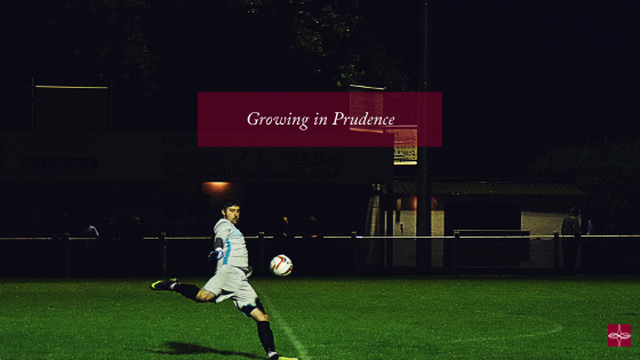

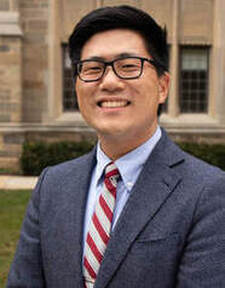
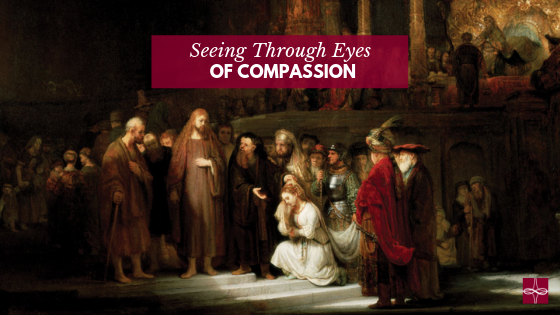

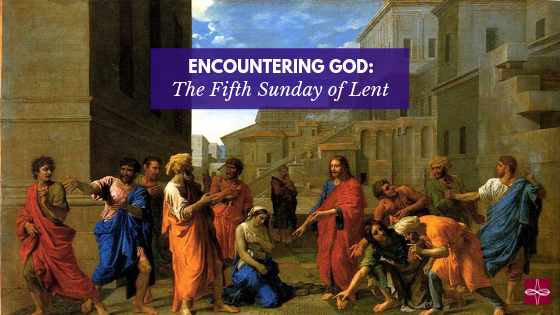
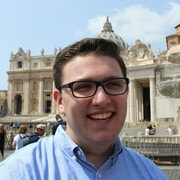
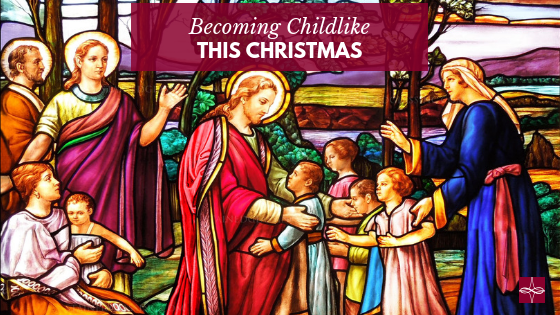

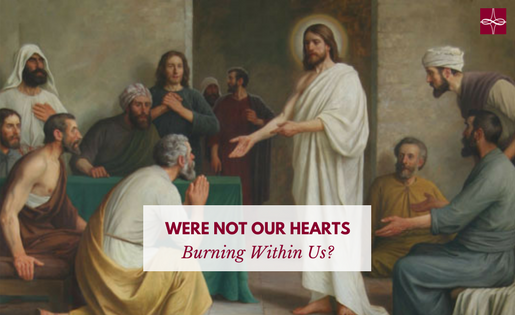



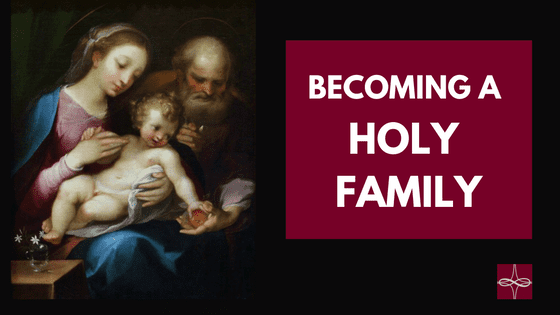

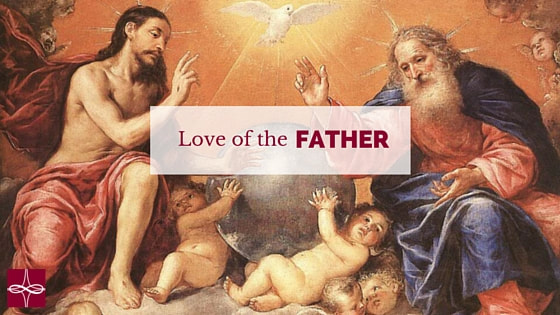



 RSS Feed
RSS Feed